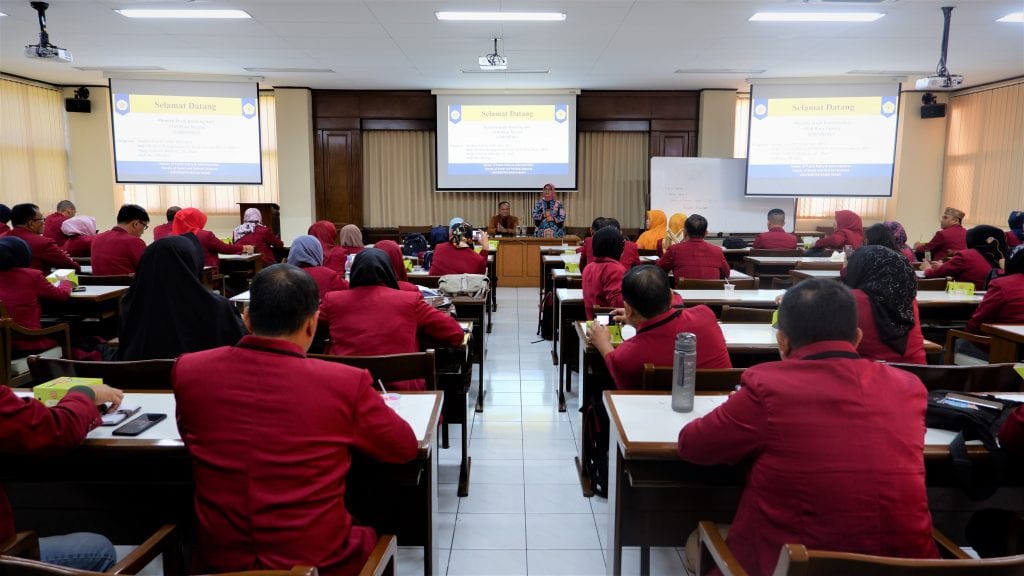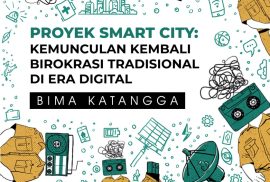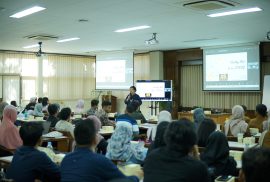

Wednesday, March 10, 2020, MAP FISIPOL UGM had guests from STIA Bina Taruna Gorontalo. Attended by Director of STIA Bina Taruna Gorontalo Prof. Dr. Arifin Tahir, M.Sc., Deputy Director for Academic Affairs Dr. Sri Yulianty Mozin, MPA., Several lecturers and 69 students. During the visit was welcomed by Dr. Ambar Widaningrum, MA. as Chairman of the Master of Public Administration Masters Program (MAP) UGM. In the comparative study agenda, the Head of the MAP Faculty of Social and Political Sciences UGM delivered the history of the establishment of the MAP and the S2 MAP curriculum and delivered a presentation with the theme of the Dynamics of Science and Practice Development. The Science of Public Administration is the study of administrative processes that occur in state institutions in all branches of power, executive, legislative, and judiciary.
In the course of the Science of Public Administration experiencing dynamics, both that arise due to the development of increasingly complex practices or because of the discourse that occurs among academics. Public Administration is currently very important in the regional development sector, as well as its role in governance. Public Administration no longer means organization and management, but covers the entire policy process, namely the formulation and implementation of policies. The purpose of the implications of Public Administration, can be implemented without going through the government bureaucracy (the role of government only as a regulator), and has a broad impact or benefits in the public criteria.
Current technological developments and socioeconomic changes increase the need for new global public governance with new capabilities in public services to be adaptive, in accordance with public needs. Thus, it is necessary to transform conventional bureaucratic organizations into more agile, multi-stakeholder, and dynamic public government institutions.
The ideal future of public administration will involve the public / community, where unique human capabilities are integrated with machine capabilities, which leads to the expansion of innovation in governance and society. Thus, it is necessary to continuously develop capacity at both the individual and organizational / regional / state levels, said Dr. Ambar Widaningrum, MA. Hopefully the knowledge gained is useful.



